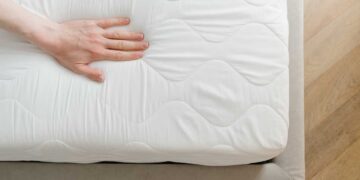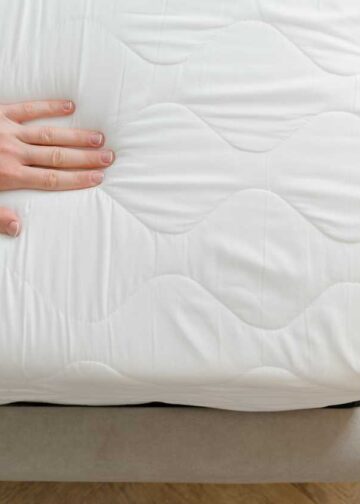Sleep is as essential to our existence as food, water, and air. A day without sleep is unimaginable since it profoundly influences our mental and physical well-being. Astonishingly, one-third of our lives is spent sleeping.
![]()
It might amaze you to learn about the myriad of biological activities that occur while we slumber. Consider these processes:
- Neurons interact extensively throughout this time, bolstering brain functionality.
- The brain not only stores new data but also discards toxic substances during sleep.
- Sleep also provides a reset for the body, aiding in energy replenishment.
- A period of sleep brings mental rest and rejuvenation.
Failing to get sufficient sleep leads to numerous issues. Your entire day might be ruined by sleepiness, severely impairing your productivity during work hours. Moreover, lack of sleep detrimentally affects your mental and physical health, often resulting in irritability.
As previously mentioned, these functions are performed by your brain and body during sleep. Sleep is crucial for health. A sound night’s sleep enables a fruitful day, allowing maximal productivity during work hours and enhancing your mood. Consistent and adequate sleep keeps you vibrant and relaxed. Thus, ensuring adequate sleep is essential for everyone.
Global Sleeping Customs
Numerous sleeping customs are observed worldwide, differing from nation to nation based on long-standing cultural traditions, lifestyle, work schedules, and other variables. This article aims to highlight some regional sleep customs. Here are a few:
American Region
In this area, individuals tend to sleep after nightfall and wake up shortly after sunrise, with some indulging in brief naps during the day. Sleeping patterns slightly vary within the countries of this region.
Europe Region
Europeans take their sleep very seriously, always striving to make optimum use of their sleep time. It’s common in various European countries for people to sleep unclothed, which they believe facilitates a more comfortable rest.
Asian Region
This region’s inhabitants are inclined to value sleep highly, unashamedly sleeping in public sights, including workplaces and public transportation.
![]()
The aforementioned sleep practices are quite prevalent in every corner of the globe. Other regions similarly adhere to these common sleeping habits.
People primarily choose one of two sleeping methods:
- Slumbering on a bed.
- Resting on the floor.
The discussion today focuses on which nations commonly opt for floor sleeping. Research indicates there is no specific country where this is predominantly the norm; preferences vary widely among individuals. If you prefer a bed, it does not necessarily mean your friend will agree. They might favor the floor instead.
Floor Sleeping is Economical
Opting for the floor can be a budget-friendly choice compared to buying a bed. One can manage with just a blanket and pillow, aligning well with rental expenses without the need of a bed.
Accommodates More People Comfortably
A bed has limited capacity. However, in situations where friends or guests decide to stay over, the floor can offer a feasible sleeping arrangement using merely a mattress on the floor.
Conserves Space
For those with limited room space, a bed might not be practical. In such cases, the only viable option may be to sleep on the floor using a simple blanket or mattress.
Beneficial for Health
There are beliefs that floor sleeping can be healthful. Though not scientifically verified, some personal experiences suggest it may help alleviate back pain issues.
Regions Where Floor Sleeping is Preferred
While Japanese individuals are noted for their minimal sleep, the Dutch are known to sleep the most. Sleeping on the floor is a widespread practice in developing and economically challenged nations, particularly prevalent in Asian and African regions, more so than in Europe or the Americas. Various reasons, as discussed earlier, influence the preference for floor sleeping globally.
- “Sleep Like Royalty: Discover the Lucid 12″ Cal King Mattress!” - February 14, 2024
- “Is Your Mattress Past Its Prime? Find Out Now!” - February 11, 2024
- Sleep Better Every Season: Seasonal Sleep Tips - January 26, 2024









